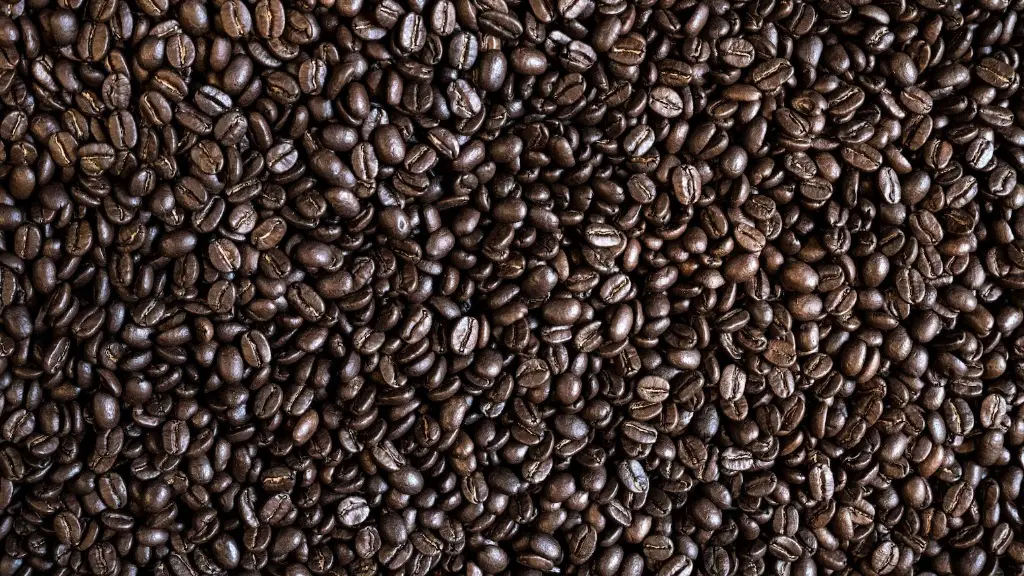Why Do I Gag When I Drink Coffee?
Many people who enjoy the taste of coffee, but gag when they try to drink it. This can be an embarrassing situation, especially when in public. While it’s uncomfortable for many people, the gag reflex doesn’t usually indicate an underlying medical issue. In fact, it could be the result of natural biological and psychological processes.
Gagging when drinking coffee often has to do with the flavor and texture of the drink. Drinking something bitter can trigger a ‘gag’ reaction in some people, especially if they have a particularly sensitive taste buds. The act of drinking something cold or hot in a fluid form can also trigger the gag reflex. In essence, it could be the individual’s physical reaction to the taste and temperature of the coffee that causes the gag reflex.
Coffee can also trigger psychological reactions. Some people with anxiety disorders might experience a stronger gag reflex to new and unfamiliar experiences. It’s also possible for an individual to create, or exaggerate, their gag reflex as a result of subconscious, or conscious, psychological triggers.
Certain medical conditions can also contribute to the gag reflex when drinking coffee. Drinking coffee can bring up acid reflex, which can cause the gag reflex. Gastroesophageal Reflux Disease, or GERD, is one of the most common causes of this. Coffee can also contribute to chronic acid reflux, which can weaken the esophageal sphincter and cause an involuntary gag reflex.
In general, research shows that some people are more prone to gagging reactions than others. Sensitivity towards taste, temperature, and unfamiliarity might be the main contributors to the gag reflex. However, it’s important to note that this doesn’t always lead to a gag reflex in every person.
There are some strategies to consider if you find yourself gagging when drinking coffee. Using caffeinated beverages with lower acidity and bitterness can help minimize the gag reflex. Additionally, you can consider switching from coffee to tea, or try sugar-free, low-sugar alternatives to sweeten the drink.
Lastly, it can be beneficial to work with a medical or mental health professional to explore possible underlying psychological triggers and medical issues. Working with a therapist can help individuals explore factors that may contribute to their gag reflex and provide coping strategies. With a combination of medical advice and self-care, it may be possible to reduce or eliminate the gag reflex related to coffee drinking.
Acid Reflux and its Effects
Acid reflux is a condition caused by the accumulation of acidic stomach juices in the esophagus, the tube connecting the stomach and throat. When the esophageal sphincter, a ring muscle at the base of the esophagus, becomes weak it opens and allows the acid to move into the esophagus. This causes various uncomfortable symptoms associated with acid reflux.
The most common symptom of acid reflux is heartburn, which is a feeling of burning in the chest and throat. Other symptoms may include a sour taste in the mouth, pain that radiates behind the breastbone, burping, hiccups, and bloating.
Acid reflux is caused by weak gastrointestinal sphincters, poor digestion, certain medications, pregnancy, diet, lifestyle, smoking, and alcohol consumption. In some cases, conditions such as a hiatal hernia, which is when part of the stomach protrudes above the diaphragm, can cause acid reflux.
It’s important to note that, in addition to the potential to cause other problems, acid reflux can contribute to the gag reflex when drinking coffee. When the lower esophageal sphincter becomes weakened, it can weaken the ability to swallow and cause the gag reflex to kick in.
As the gag reflex is a natural response to something entering the throat, the presence of acid can be viewed as a foreign body and thus trigger the gag reflex.
The good news is that acid reflux can generally be managed with lifestyle modifications, medications or over-the-counter antacids, and natural remedies such as apple cider vinegar, aloe vera juice, ginger, and chamomile tea.
Psychological Effects of Gagging on Coffee
It’s often assumed that gagging when drinking coffee has a physical cause, however in some cases, it can have psychological roots. For example, individuals with anxiety syndromes often have a heightened gag reflex, due to an oversensitivity towards new and unfamiliar experiences.
In addition to individuals with an anxiety disorder, a hypersensitive gag reflex can also be experienced by individuals who are anxious and stressed, or those with depression, bipolar disorder, and post-traumatic stress disorder. It can also occur in people who have had negative experiences in the past that relate to food, beverage or the act of drinking.
It’s also possible for an individual to consciously or subconsciously create their own gag reflex. This can occur when the act of drinking is associated with a negative emotion and the emotion then triggers a reaction that releases the gag reflex, even when there’s no relevant physical or medical issue at hand.
In general, it’s important to be aware that gag reflex can be caused by a variety of factors. It’s important to consult a doctor if the gag reflex is persisting or has become chronic, as there may be an underlying medical or mental health concern.
How to Overcome the Gag Reflex
If you experience gagging while drinking coffee, there are several strategies you can use to manage the gag reflex. One of the most important strategies is to identify the particular triggers that cause the gag reflex and work to counteract them.
For instance, if the coffee is too bitter, try using a milder brand or adding cream or sugar to the beverage. If the coffee is too hot, let it cool before consuming it. You can also try non-caffeinated drinks, such as teas, juices, and smoothies. This can help to reduce the gag reflex, as caffeine can be an additional source of stimulation.
In addition, it can be helpful to work on relaxation techniques and practice mindfulness when drinking. Focusing on the sensation of drinking as opposed to the taste can be beneficial, and can make the act of consuming the coffee less uncomfortable. Mindful meditation and deep breathing techniques can also be helpful in managing the gag reflex.
Lastly, talking to a mental health professional can be beneficial in exploring possible psychological triggers and working on coping strategies. A therapist can help individuals identify their specific triggers, and work on relaxation techniques to reduce the gag reflex.
The Bottom Line
Gagging when drinking coffee is a common issue for many people, and it can occur for a variety of reasons. Medical conditions such as acid reflux can be a contributing factor, as can psychological triggers. It’s important to be aware that some people are more likely to experience a gag reflex than others.
If you experience gagging while drinking coffee, there are strategies you can employ to manage the reflex. For instance, using coffee with lower acidity, switching to tea, and adding cream or sweetener to the beverage might help to reduce the gag reflex. Additionally, focusing on relaxation and practicing mindful breathing can help to manage the reflex. Lastly, it can be beneficial to consult a doctor or therapist to explore possible underlying medical and psychological causes.





